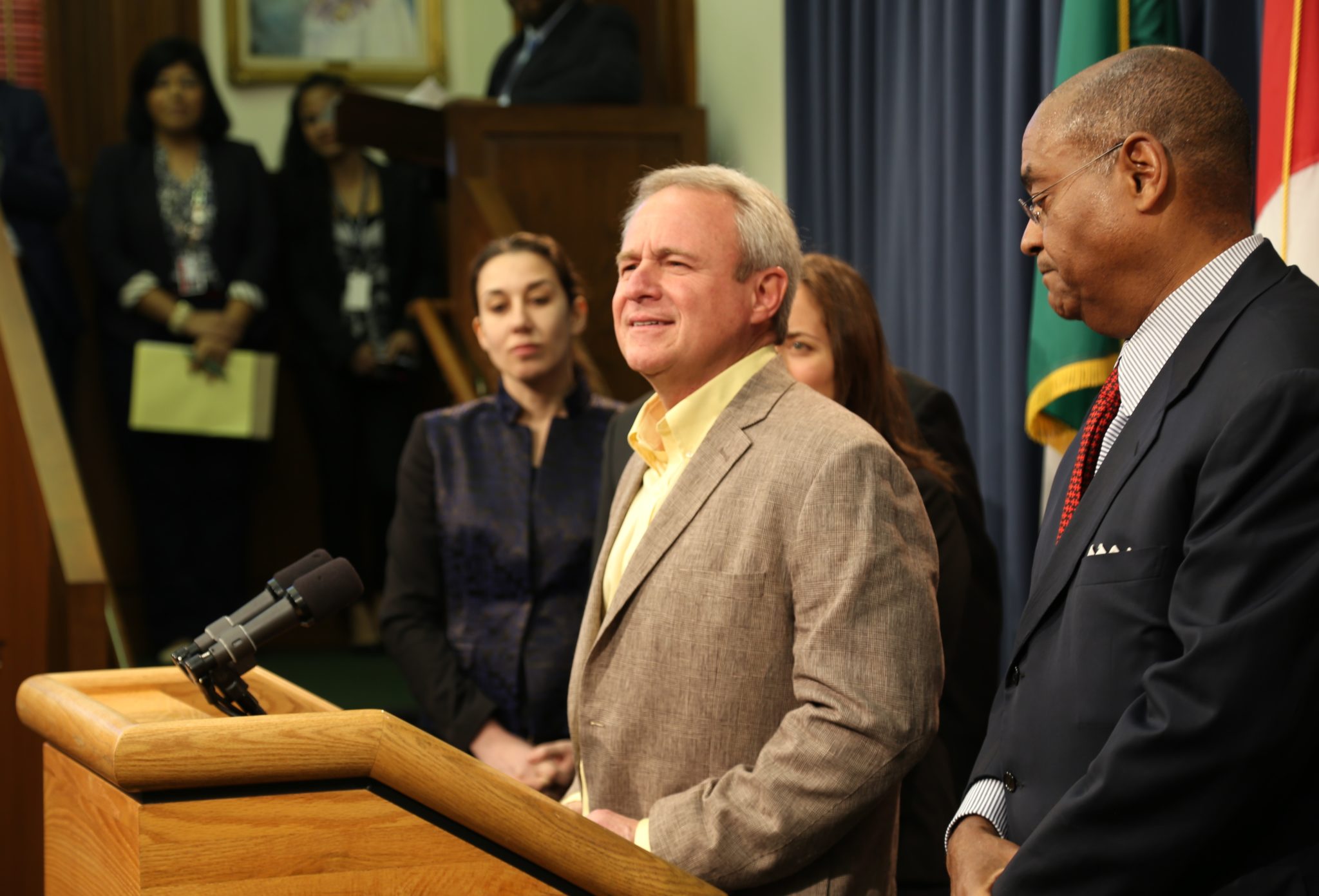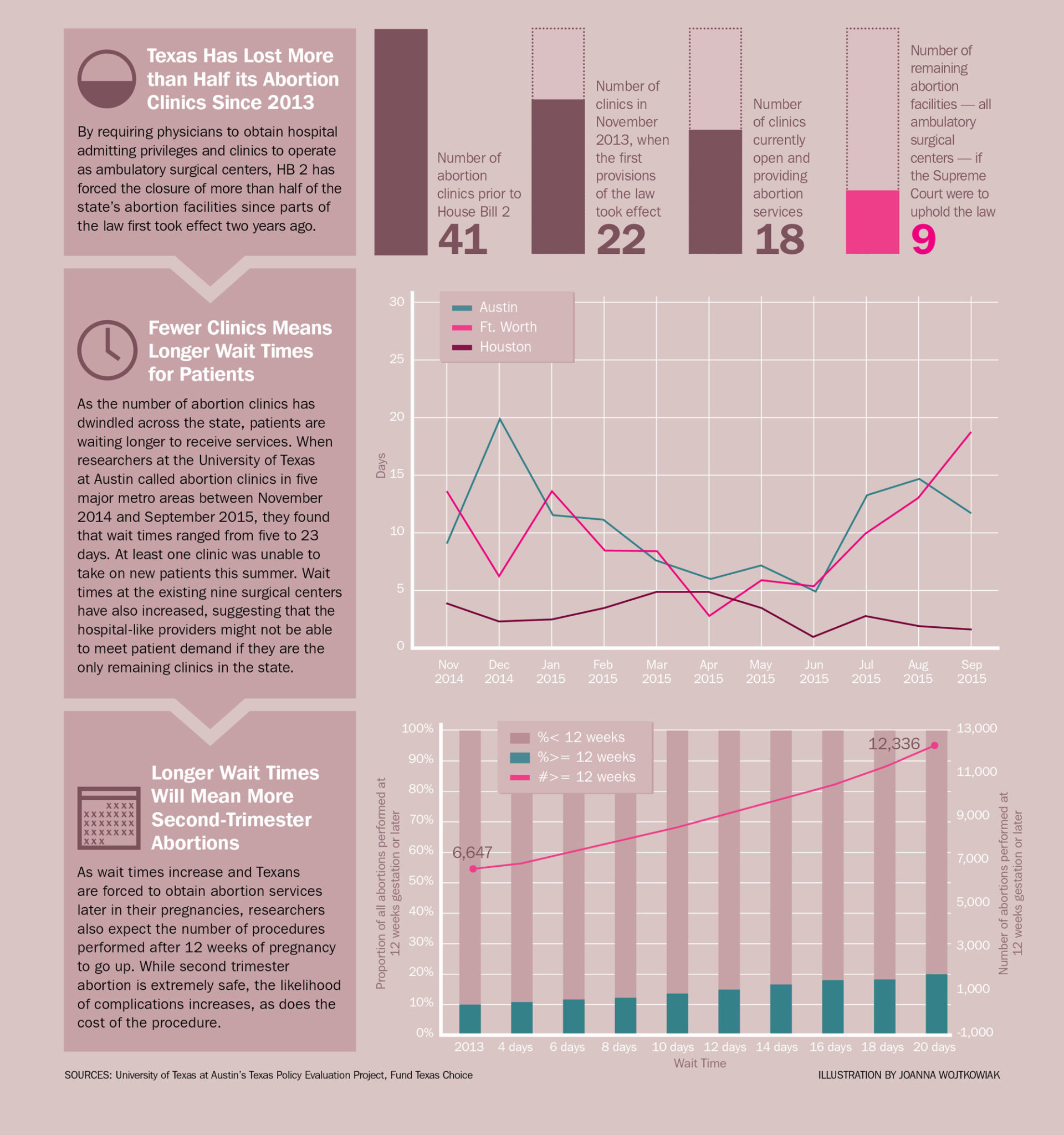
Michael Morton and Sen. Rodney Ellis Aim to Improve DNA Testing Law

Michael Morton served 25 years in prison before DNA testing proved that he didn’t kill his wife. Post-conviction DNA testing has led to the exoneration of 52 Texans since 1989 and helped to identify the real perpetrators of the crime in 21 of those cases, including Morton’s. But because of some ambiguous language in current law, access to DNA evidence that could prove innocence is sometimes impeded.
“As it stands now, we have something of a catch-22 in Texas,” Morton said Monday at a press conference, where he spoke in support of new DNA testing legislation filed by Sen. Rodney Ellis (D-Houston).
Morton, who was released from prison in 2011, said he may never have been able to prove his innocence under the current law, which went into effect in September 2011. In January 2010, Morton successfully convinced a court of appeals to test a bloody bandana that had been discovered behind his house. DNA testing found invisible cells on the bandana that excluded Morton and pointed to his wife’s real killer, Mark Norwood, whose profile was in the FBI’s Combined DNA Index System (CODIS).
The Texas Criminal Court of Appeals ruled last year that current law requires those seeking DNA testing to prove the existence of microscopic material on the evidence before testing when there are no obvious indications of DNA evidence—like blood-stains. Often there’s DNA on evidence that’s invisible to the naked eye from saliva, sweat or skin cells.
Last week, Ellis filed legislation—Senate Bill 487—that would clarify the language of the current law in an effort to ensure that courts allow testing of evidence that could prove innocence. The bill also would enhance the use of CODIS to compare evidence to DNA records already on file.
“These changes are simple and would provide the courts with the clear guidance that they requested,” Ellis said at the press conference. “This is about making sure that the right person is convicted and making sure that communities are safe. This is a law-and-order bill.”
Innocence Project attorney Nina Morrison, who represented Morton, said that the bill “strikes the right balance” by giving judges the appropriate amount of discretion to order testing without turning the courts into DNA testing mills.
In Morton’s case, it took a court five years to grant permission to run a DNA test on relevant evidence.
“For somebody to be in a court battle about whether there is evidence for testing when the labs can just tell us—it just seems like a real waste of everybody’s time,” Morrison said.
Ellis was also joined at the press conference by Cory Session, a policy advisor for the Innocence Project of Texas, who said that the bill will keep Texas on the forefront of criminal justice reform.
“We are still our brother’s keeper, whether they are here in the air-conditioned comfort of the statehouse or whether they are still languishing in the un-air-conditioned heat of the big house,” Session said.
Ellis expects bipartisan support for the bill but cautioned that it was still in the early stages and said that he did not have a House sponsor for the bill yet.


